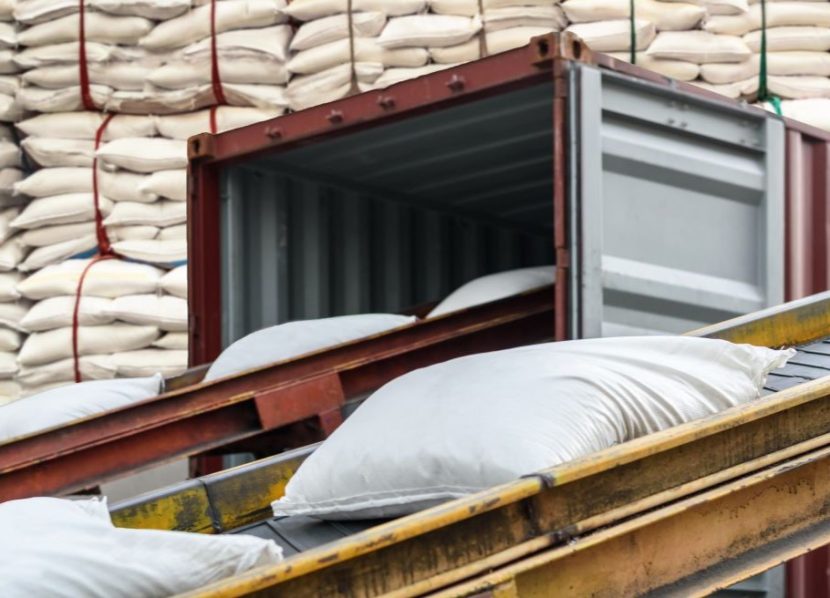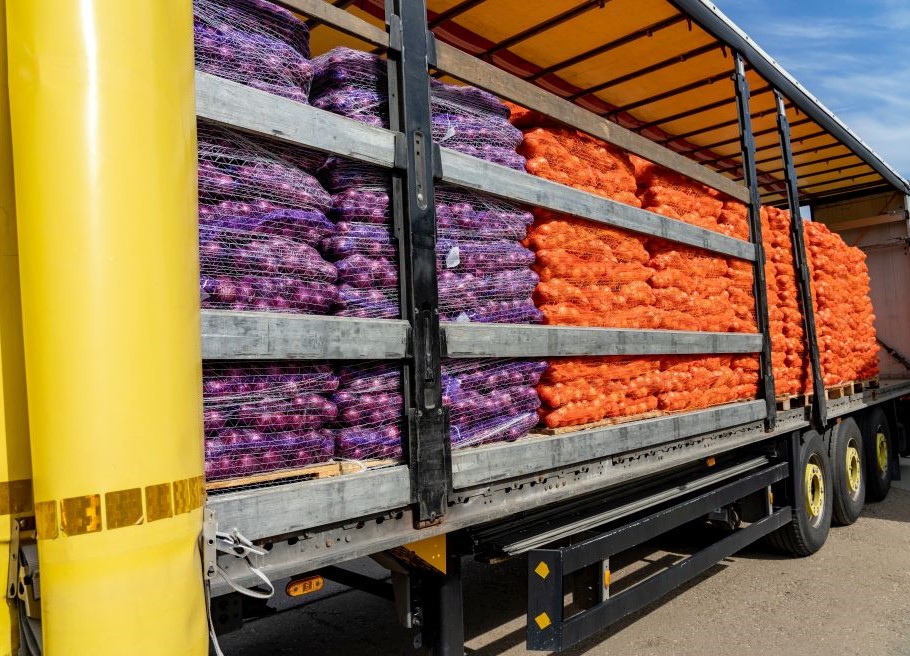Building a Safer Food System with Smart Supply Chain Strategies
By Elcio Grassia
The supply chain encompasses all stages of food production, processing, distribution, and retail. Due to the complexity of food operations, each link presents potential risks that can compromise food safety. Effective supply chain management, or SCM, addresses these risks by implementing robust processes and controls at every stage.
The primary objectives of SCM in food safety include:
- Risk Mitigation: Identifying and managing potential hazards through proactive risk assessment and management.
- Traceability: Ensuring complete visibility and traceability of food throughout the supply chain to quickly identify and address spoilage/contamination issues.
- Compliance: Adhering to regulatory standards and industry best practices to maintain food safety and quality.
Effective supply chain management involves rigorous supplier selection and management, with regular audits ensuring suppliers adhere to food safety standards.
There are several key strategies a SCM professional can utilize to improve an organization’s food safety and quality initiatives.
Implementing Hazard Analysis and Critical Control Points (HACCP)
HACCP is a systematic approach to identifying, evaluating, and controlling food safety hazards. By integrating HACCP principles into SCM, organizations can ensure that critical control points are monitored and managed effectively. This can reduce the risk of spoilage and contamination, help identify potential hazards at each stage of the supply chain – from raw material sourcing to final distribution – and establish control measures to prevent, eliminate, or reduce these hazards to acceptable levels.
Leveraging Technology for Traceability and Transparency
Technological advancements such as blockchain, Radio-Frequency IDentification (RFID), and Internet of Things (IoT) devices revolutionized SCM by providing real-time data and enhanced traceability. These technologies enable the tracking of products, ensuring transparency and accountability throughout the supply chain. Blockchain technology creates an immutable decentralized ledger of transactions, accessible to all stakeholders. This transparency allows for the rapid identification of contamination sources, minimizing the impact on consumers and reducing recall costs.
Supplier Management and Auditing
Effective SCM involves rigorous supplier selection and management. Conducting regular audits and supplier assessments ensures they adhere to food safety standards and practices. Building strong relationships with trusted suppliers minimizes associated risks. Audits and assessments help verify that suppliers comply with regulatory requirements and industry standards while identifying areas for operational improvements. This proactive approach helps maintain the integrity of the supply chain, ensuring only safe, high-quality products reach consumers.
Training and Education
Investing time and money in team education and training is vital for maintaining food safety. Continuous training ensures employees are well-versed in food safety protocols, hygiene practices, and industry regulations. Training can include workshops, seminars, and certification programs covering topics such as proper handling and storage of food, personal hygiene, and contamination prevention. By giving employees the knowledge and skills to uphold food safety standards, organizations can create a real culture of safety and accountability.
Collaborative Efforts and Partnerships
Collaboration among supply chain participants is essential for a cohesive approach to food safety. Establishing partnerships and sharing best practices fosters a culture of safety and continuous improvement across the supply chain. Collaborative efforts can include joint initiatives for food safety research and development, information sharing on emerging risks, mitigation strategies, and coordinated responses to incidents. Working together, stakeholders can leverage their collective expertise and resources to enhance food safety and build consumer trust.
The Produce Traceability Initiative (PTI)
One of the most significant advancements in SCM for food safety was the creation of the Produce Traceability Initiative (PTI), a voluntary, industry-led effort to enhance traceability throughout the produce supply chain. The initiative was developed in response to several high-profile foodborne illness outbreaks that underscored the need for improved traceability systems, whole-chain traceability, and the ability to track produce from farm to point of sale.
Under PTI, traceability is accomplished through the implementation of standardized case labeling with Global Trade Item Numbers (GTINs) and standardized formats for case and pallet labels containing information that allows for the identification of produce at any point in the supply chain.
The benefits of PTI are manyfold. It can:
- Enhance the ability of supply chain participants to quickly and accurately trace back produce in the event of a food safety issue.
- Reduce the time required to respond to recalls or contamination, limiting the scope of recalls, protecting consumers, and minimizing financial losses for businesses.
- Promote greater accountability within the produce supply chain, fostering trust among consumers, retailers, and regulatory bodies.
The standardized approach advocated by PTI streamlines supply chain processes, enhancing overall efficiency and reducing operational costs.
The Importance of Regulatory Compliance
Regulations such as the Food Safety Modernization Act (FSMA) in the United States, the General Food Law Regulation in the European Union, and various international standards provide frameworks for food safety practices. Compliance with these regulations ensures that food meets safety and quality requirements, helping prevent foodborne illnesses and protecting public health. SCM professionals must stay informed of regulatory changes and implement the necessary adjustments in their operations to maintain compliance and uphold food safety standards.
Future Trends in SCM for Food Safety
As the global food industry continues to evolve, several emerging trends are shaping the future of SCM in promoting food safety. These trends include the use of artificial intelligence and machine learning for predictive analytics and risk assessment, the adoption of advanced packaging technologies to extend shelf life and reduce contamination, and the growing emphasis on sustainability and ethical sourcing practices. By embracing these trends, companies can enhance food safety outcomes, improve supply chain resilience, and meet the evolving demands of consumers and regulatory authorities.
In an era where food safety is constantly scrutinized, SCM is a critical pillar in safeguarding public health. By integrating advanced technologies, adhering to rigorous standards, and fostering collaboration, SCM professionals can ensure that food products are safe, reliable, and of the highest quality.
About the Author:
Elcio Grassia is a supply chain management and logistics expert with more than 40 years in the food/foodservice industries. Grassia is currently the CEO of Nazar Systems, a food service technology firm delivering supply chain visibility. He is also, an independent consultant focused on supply chain strategy, process re-engineering, and logistics operations, who has worked with Havi Global Solutions Latin America, McDonald´s, Martin-Brower Brazil, and Nestlé Brazil.

-
 FeaturedRisk management
The Cost of a Breach: What a Cyberattack Could Mean for Food Safety Recalls
FeaturedRisk management
The Cost of a Breach: What a Cyberattack Could Mean for Food Safety Recalls
-
 FeaturedRisk management
Securing the Food Chain: How ISO/IEC 27001 Strengthens Cybersecurity
FeaturedRisk management
Securing the Food Chain: How ISO/IEC 27001 Strengthens Cybersecurity
-
 FeaturedRisk management
Revolutionizing Food Safety Training: Breaking Out of the “Check-the-Box” Mentality
FeaturedRisk management
Revolutionizing Food Safety Training: Breaking Out of the “Check-the-Box” Mentality
-
 GFSI Standards
GFSI 2025: Building Trust, Tech-Forward Solutions, and Global Unity in Food Safety
GFSI Standards
GFSI 2025: Building Trust, Tech-Forward Solutions, and Global Unity in Food Safety
-
 FeaturedFood Safety
Integrated Pest Management: Strategies to Protect Your Brand’s Reputation
FeaturedFood Safety
Integrated Pest Management: Strategies to Protect Your Brand’s Reputation
-
 FeaturedFood Safety Culture & Training
No Open Door Policy: Challenges That Impact Pest Control in Food Processing Plants
FeaturedFood Safety Culture & Training
No Open Door Policy: Challenges That Impact Pest Control in Food Processing Plants



